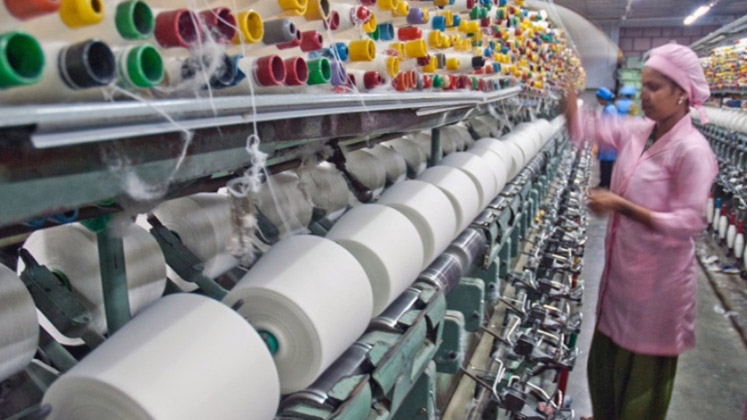
Due to a decrease in international work orders amidst global economic volatility, a significant number of garment manufacturers in Bangladesh have been failing to uphold their primary agreements for purchasing yarn from local spinners.
Reports maintained this adding approximately 50 garment manufacturers were yet to formalise their proforma invoices (PI) into letters of credit (LC).
The PI serves as the initial agreement between buyers and sellers, outlining the terms of the transaction, while the LC represents the final purchase agreement based on the terms specified in the PI.
Monsoor Ahmed, the CEO of BTMA, has expressed concern over this situation, highlighting that the failure of garment manufacturers to honour their PIs signifies a slowdown in the influx of work orders from international retailers and brands.
Additionally, this trend reflects a growing reliance on imported yarn due to the narrowing price differential between imported and local varieties, which allows garment makers to offset higher input costs by delivering superior-quality products.
Furthermore, the lack of work orders has given garment manufacturers more time to fulfil their shipments, reducing the urgency to source yarn from local spinners to ensure shorter lead times. It’s worth noting that the actual value of suspended PIs may be even higher than reported by the BTMA’s monitoring cell, as many millers are hesitant to lodge complaints for fear of losing business.
Two months ago, in response to an increase in work orders from abroad and the easing of inflationary pressures in the western world, local yarn prices surged. During this period, the widely used 30-count yarn was fetching prices between US $ 3.60 and US $ 3.65 per kilogram in domestic markets.
However, this upward trend in work orders was short-lived, and global prices for both cotton and yarn began to decline, prompting local garment manufacturers to lose interest in upholding their PIs.






